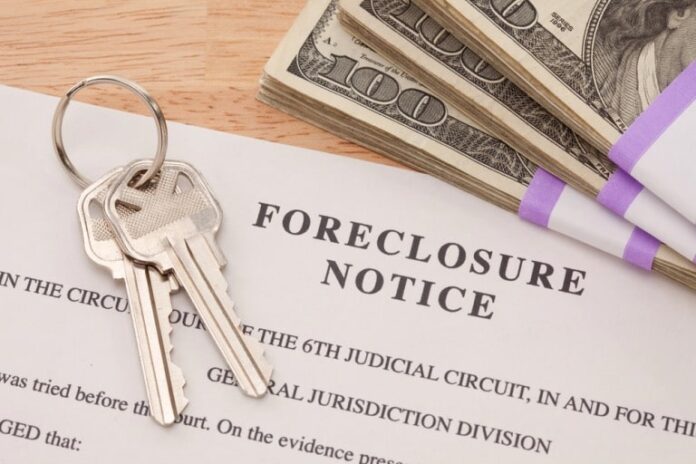Foreclosing on a home is a daunting prospect that can leave homeowners feeling helpless. However, knowledge is power, and understanding your options can make a crucial difference.
This guide will walk you through practical steps to stop foreclosure, offering tips from professionals who have extensive experience in this area.
What is Foreclosure?
Foreclosure is a legal process where a lender attempts to recover the balance of a loan from a borrower who has stopped making payments. Typically, this involves the forced sale of the asset used as collateral for the loan, usually the borrower’s home.
Knowing what foreclosure means is the first step in preventing it. Different states have varying laws regarding foreclosure, so it’s important to be familiar with your state’s specific regulations.
Pre-foreclosure is the period before the formal foreclosure proceedings start. During this time, homeowners can still take action to avoid foreclosure.
3 Ways to Stop Foreclosure
The good news is that there are multiple ways to halt foreclosure proceedings. Here are three key methods:
Communicate Openly with Your Lender
One of the first and most crucial steps is to communicate openly with your lender. Many lenders offer foreclosure services that can help you find a solution. Ignoring the problem will only make it worse, so it’s essential to talk to your lender as soon as you start facing financial difficulties.
Lenders may offer various options, such as loan modification, forbearance, or repayment plans. Loan modification can involve extending the term of your loan or reducing the interest rate to make payments more manageable. Forbearance allows you to pause or reduce your payments temporarily.
Always keep accurate records of all communications with your lender. Document every phone call, email, and letter to have a clear history of your efforts to resolve the issue.
Seek a Foreclosure Lawyer
Another effective way to stop foreclosure is by hiring a foreclosure attorney. These experts specialize in foreclosure defense and can provide invaluable assistance. They can review your case, identify any irregularities in the foreclosure process, and represent you in court if needed.
A foreclosure lawyer can also negotiate with your lender on your behalf. They may secure a loan modification or other agreement that could prevent foreclosure.
When choosing a foreclosure lawyer, look for someone with a good track record and positive client reviews. Remember, legal advice is particularly useful if your situation involves complex issues like lender fraud, violations of state laws, or bankruptcy.
Consider Bankruptcy
Filing for bankruptcy can be a last-resort measure to stop foreclosure. When you file for bankruptcy, an automatic stay is placed on your debts, temporarily halting the foreclosure process.
Depending on your situation, Chapter 7 or Chapter 13 bankruptcy could be the right option for you. Chapter 7 bankruptcy can discharge your unsecured debts, potentially freeing up resources to pay your mortgage. However, it won’t eliminate secured debts like a mortgage.
Chapter 13 bankruptcy, on the other hand, allows you to reorganize your debts and create a repayment plan, which can include past-due mortgage payments.
Consulting with a bankruptcy attorney can help you understand if this option is suitable for you. They can guide you through the process and help protect your home.
When is it Too Late to Stop Foreclosure?
Timing is crucial when dealing with foreclosure. The earlier you act, the more options you will have. However, there comes a point when it might be too late to stop foreclosure.
Once the foreclosure sale has been scheduled, it becomes increasingly difficult to halt the process. In some states, you may still have the right to redeem your home by paying off the total amount owed, including fees and costs. This is known as the right of redemption.
If the foreclosure has already occurred and the property has been sold, your options become very limited. At this stage, it’s crucial to seek legal advice to explore any remaining avenues.
Understanding foreclosure news and staying updated with the latest developments can also give you a strategic advantage. Knowledge of ongoing changes in foreclosure laws and practices can help you make informed decisions.
